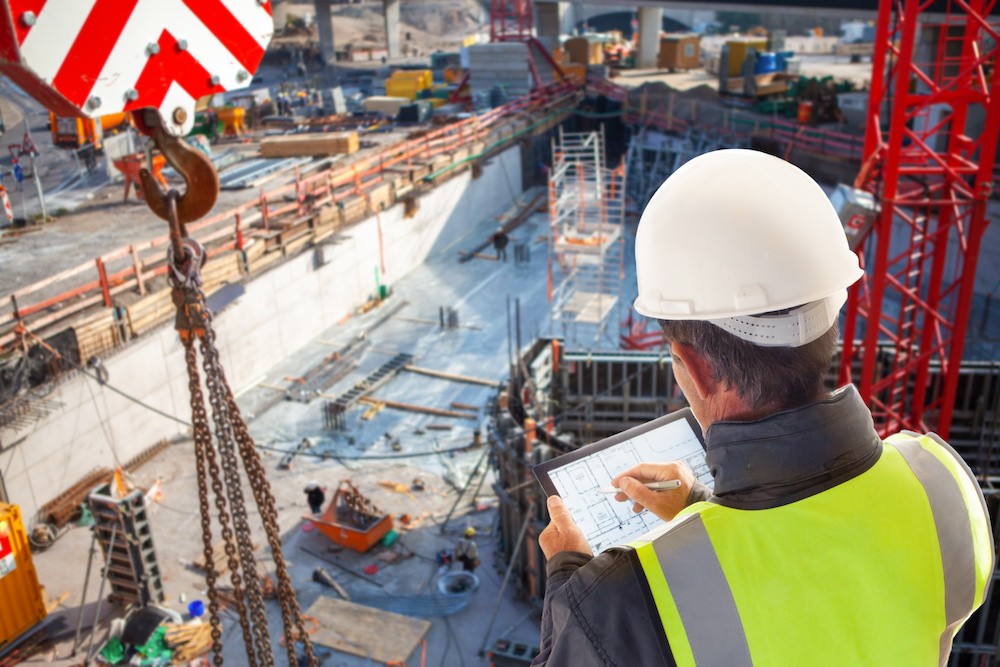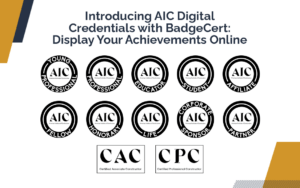The construction field has witnessed a remarkable transformation in recent years, much of which has been driven by rapid advancements in technology.
Construction managers are now embracing a plethora of innovative tools that are reshaping the industry. This shift can enhance efficiency and fundamentally alter the role of construction managers, empowering them to make informed decisions and streamline project workflows.
Organizations like the American Institute of Constructors (AIC) recognize that to succeed in today’s fast-paced environment, it’s important to understand how technology has transformed the responsibilities of construction managers. Today, we will share some new trends in construction technology that are reshaping the construction landscape.
The Changing Role of Construction Managers
Traditionally, construction managers relied on manual methods and paper-based documentation to perform key duties such as overseeing labor, costs, and schedules. However, the integration of technology has elevated their role to that of strategic decision-makers with a focus on data-driven insights and efficient project management.
Modern construction managers now find themselves at the intersection of technology and construction, leveraging tools that enhance collaboration, communication, and overall project control.
New Trends in Construction Technology to Utilize
The field of construction management has expanded at an astounding pace in the past decade. Priorities have shifted toward accuracy, speed, and safety as new advancements make previously unattainable benchmarks possible.
Technology has enabled construction managers to access real-time data, allowing them to make informed decisions on the spot. For example, cloud-based project management platforms, such as Procore and Autodesk BIM 360, provide a centralized hub for project information, facilitating collaboration among stakeholders and ensuring that everyone is on the same page.
Let’s dive into some specific technological trends that are changing how construction managers drive toward successful project completion.
Building Information Modeling (BIM)
BIM software has emerged as a transformative technology that supports the entire construction process. It involves creating a digital representation of the entire building process, from design to construction and maintenance.
Construction managers can use BIM to visualize the project in 3D, identify potential clashes, and optimize designs before construction begins. This effort not only reduces errors but also enhances communication and collaboration among project team members.
Drones and Aerial Imaging
Drones have become indispensable tools on construction sites. Not only do they offer a bird’s-eye view for project monitoring and surveying, but construction managers can use drones to conduct site inspections, monitor progress, and capture high-resolution images for detailed analysis.
Aerial imaging technology is incredibly valuable to help create accurate topographic maps, enabling better project planning and resource allocation.
Robotics and Automation
The integration of robotics and automation has revolutionized certain aspects of construction, particularly with repetitive or hazardous tasks. Construction managers are now deploying robotic systems for tasks like bricklaying, concrete pouring, and even 3D printing of structures.
These technologies can help improve efficiency, enhance safety by minimizing human exposure to potentially dangerous situations, and reduce risk throughout the project site. Remember: people are your most valuable resource, so it pays to keep workers out of harm’s way.
Augmented Reality (AR) and Virtual Reality (VR)
AR and VR technologies that utilize artificial intelligence (AI) can enhance the design and visualization phases of construction projects, especially for modular construction projects.
- Construction managers can use AR to overlay digital information onto the physical environment, facilitating on-site decision-making.
- VR provides immersive experiences, allowing stakeholders to virtually walk through a building before construction begins.
This emerging technology can improve communication, reduce errors, and enhance client understanding of the final product.
Internet of Things (IoT)
The Internet of Things is a larger concept that prioritizes interconnected systems and has brought about a new era of connectivity on construction sites.
Sensors and smart devices are embedded in construction equipment, tools, and even building materials, providing real-time data on performance, usage, and safety. Construction managers can use this data to optimize equipment utilization, predict maintenance needs, and ensure a safer working environment.
Sustainable Construction Technologies
With the growing emphasis on sustainability and green building, construction managers can adopt technologies that promote eco-friendly practices. This includes the use of recycled materials, energy-efficient construction methods, and smart building systems that optimize energy consumption and help with reducing waste.
In addition to aligning with a client’s environmental objectives, using sustainable construction technologies can contribute to long-term cost savings. By using new technology that supports sustainability, projects may last longer and perform better throughout their lifespan, reducing post-construction maintenance and repair costs.
Putting Technology to Use in Real Environments
As you can see, the integration of technology into the construction industry has ushered in a new era for construction managers. Their role has evolved from overseeing manual processes to becoming strategic decision-makers armed with real-time data and innovative tools.
Embracing these new trends in construction technology can enhance efficiency, reduce costs, and ensure that construction projects are completed with precision and sustainability in mind.
Construction managers who adapt to these technological shifts will undoubtedly lead their teams to success in the dynamic and ever-evolving construction landscape.
AIC is Looking Ahead to the Future of Construction
At AIC, we recognize that new technologies are the key to a better future in the construction industry. That’s why we encourage our members to embrace advances in the field as they continue their journey as construction managers.
Being aware of the progress being made in building techniques and project management – as well as the cutting-edge methods being employed on job sites around the world – is a crucial step toward advancing in your career.
As a construction manager, you should maintain a growth mindset by constantly learning about new methods to execute construction projects. No matter how long you’ve been in the field, you can keep in mind a few key tenets to help you work more efficiently and effectively.
Continue Your Education and Skill Development
By staying on top of new technologies and methods in the industry, you can lead your team in a more direct and progressive manner. Looking to validate your understanding of new concepts, ethics, and important regulations?
Become a Certified Associate Constructor (CAC) or take the next step as a Certified Professional Constructor (CPC). AIC offers certification exams to help you prove to potential employers that you’re staying ahead of the game.
Expand Your Knowledge
Going beyond the traditional bounds of construction management will help you excel in your career.
Learning about ethical issues, sustainable building practices, and new construction technologies will set you apart from your peers as someone who values continuous education. You’ll be positioned as a versatile member of the team who brings value to every project.
– Read why continuing education in construction is vital to maintaining an upward trajectory.
– Check out our guide to construction career advancement.
Be Adaptable
Just like technology, the construction industry is continually growing and changing. It’s important to be adaptable and flexible to ensure the success of each project.
While it’s important to have core ideals and a firm grounding in the fundamental concepts of construction, being open to new insights and more advanced ways of managing projects will help yield better results.
Leverage Resources to Tap Into New Trends in Construction Technology
AIC knows that we’re all in this together as constructors. We should all be learning from each other how to utilize the latest technology to support complex construction projects.
Engaging in dialogue with fellow constructors about new trends in construction technology can help you perform duties in a manner that supports your clients, your construction company, and the construction industry as a whole.
– We invite you to consider becoming an AIC member to tap into a highly experienced group of construction professionals. AIC membership comes with tremendous benefits, including access to an expansive network of seasoned professionals across the globe.
– We also encourage you to follow AIC on LinkedIn for helpful tips and updates on the latest happenings in construction. Be part of a group that is actively accelerating constructor excellence.




